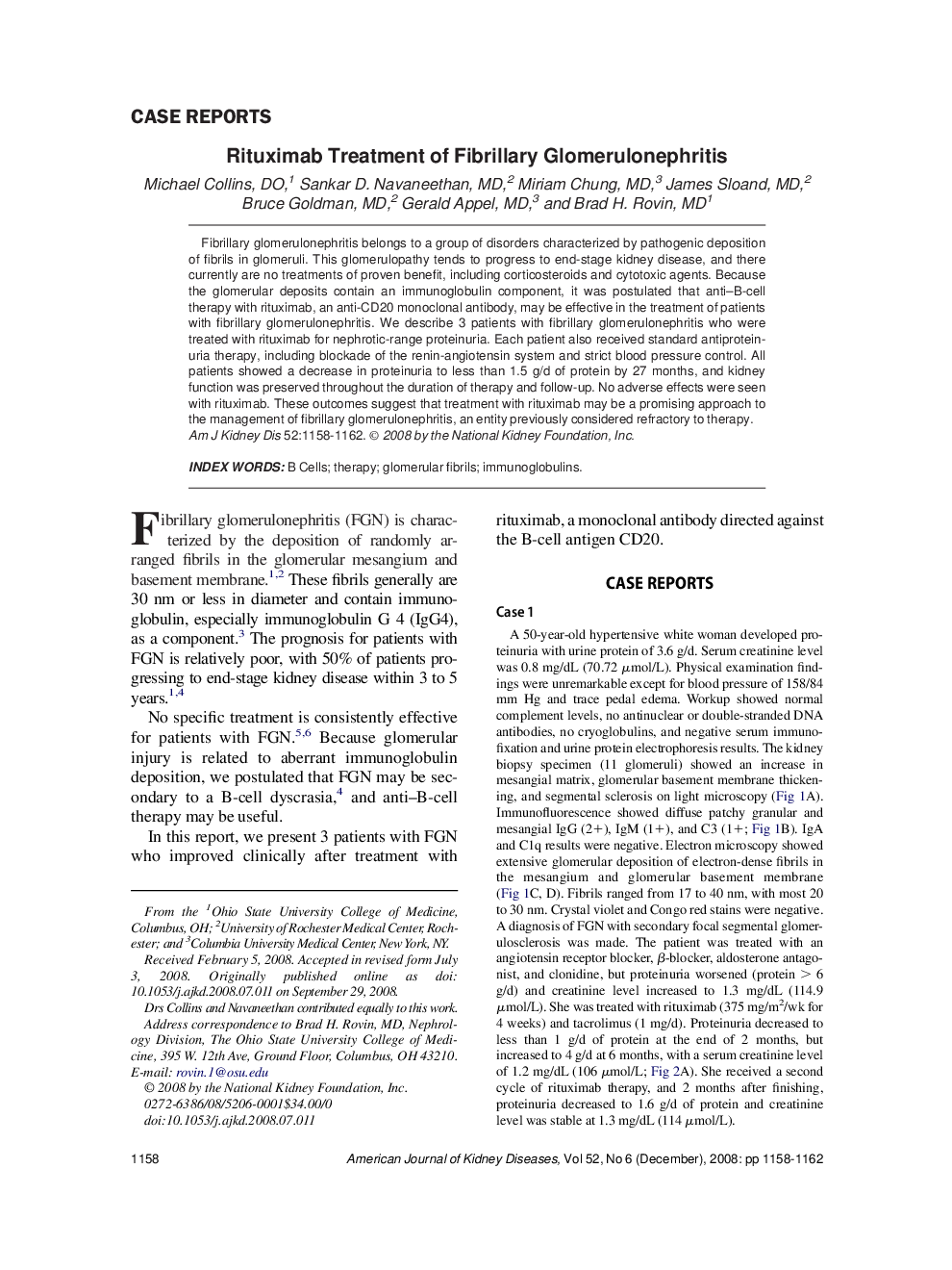| Article ID | Journal | Published Year | Pages | File Type |
|---|---|---|---|---|
| 3850561 | American Journal of Kidney Diseases | 2008 | 5 Pages |
Abstract
Fibrillary glomerulonephritis belongs to a group of disorders characterized by pathogenic deposition of fibrils in glomeruli. This glomerulopathy tends to progress to end-stage kidney disease, and there currently are no treatments of proven benefit, including corticosteroids and cytotoxic agents. Because the glomerular deposits contain an immunoglobulin component, it was postulated that anti-B-cell therapy with rituximab, an anti-CD20 monoclonal antibody, may be effective in the treatment of patients with fibrillary glomerulonephritis. We describe 3 patients with fibrillary glomerulonephritis who were treated with rituximab for nephrotic-range proteinuria. Each patient also received standard antiproteinuria therapy, including blockade of the renin-angiotensin system and strict blood pressure control. All patients showed a decrease in proteinuria to less than 1.5 g/d of protein by 27 months, and kidney function was preserved throughout the duration of therapy and follow-up. No adverse effects were seen with rituximab. These outcomes suggest that treatment with rituximab may be a promising approach to the management of fibrillary glomerulonephritis, an entity previously considered refractory to therapy.
Keywords
Related Topics
Health Sciences
Medicine and Dentistry
Nephrology
Authors
Michael DO, Sankar D. MD, Miriam MD, James MD, Bruce MD, Gerald MD, Brad H. MD,
